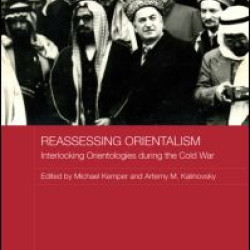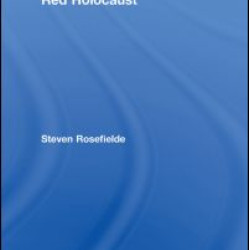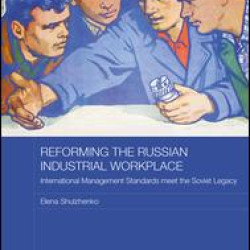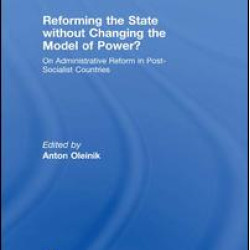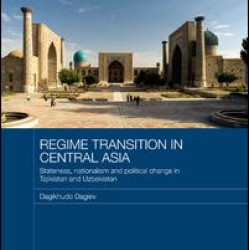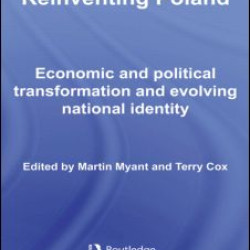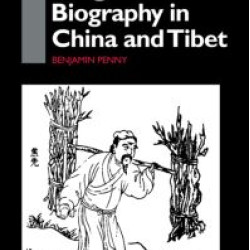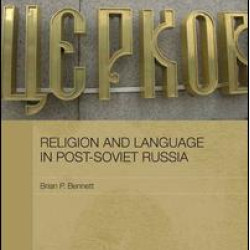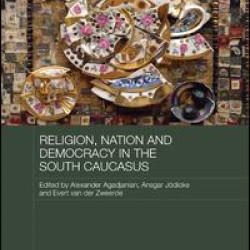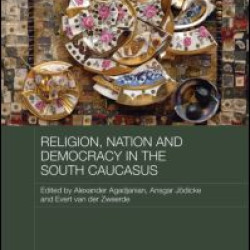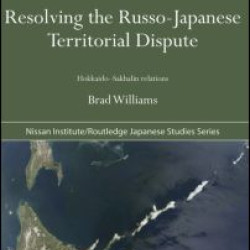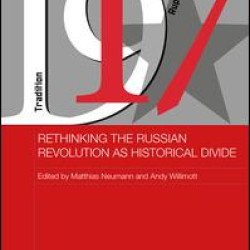Central Asian, Russian & Eastern European Studies
Brand: Taylor & Francis
Model: Stock
Orientalism as a concept was first applied to Western colonial views of the East. Subsequently, different types of orientalism were discovered but the premise was that these took their lead from Western-style orientalism, applying it in different circumstances. This book, on the other hand, argues t..
₹9,914.40 ₹12,393.00
Brand: Taylor & Francis
Model: Stock
Red Holocaust investigates high crimes against humanity in the Soviet Union, eastern and central Europe, North Korea, China, Vietnam, Laos and Cambodia 1929-2009, and compares the results with Ha Shoah and the Japanese Asian Holocaust. _x000D_
As in other studies, blame is ascribed to political, ide..
₹11,016.00 ₹13,770.00
Brand: Taylor & Francis
Model: Stock
Based on extensive original research, this book explores how far Soviet patterns of industrial workplace organisation, characterised by high levels of management discretion and authoritarian control and punitive methods on the shop floor, have been replaced by a more international approach, with a g..
₹8,078.40 ₹10,098.00
Brand: Taylor & Francis
Model: Stock
This book considers administrative reform in post-socialist countries in the context of power and domination, to clarify why reforms failed in Russia and other post-Soviet countries, yet were positive in Baltic States and East European countries. Russia’s reform is compared to that of the Ukraine, B..
₹2,643.10 ₹3,303.88
Brand: Taylor & Francis
Model: Stock
Presenting a study of regime transition, political transformation, and the challenges that faced the post-Communist republics of Central Asia on independence, this book focuses on the process of transition in Tajikistan and Uzbekistan, and the obstacles that these newly-independent states are facing..
₹2,643.10 ₹3,303.88
Brand: Taylor & Francis
Model: 9780415451758
The end of communism and accession to the European Union have had a huge impact on Poland. This book provides an overall assessment of the post-1989 transformation in Poland, covering economic transformation; the heritage of the past and national identity; and regional and political developments bef..
₹8,812.80 ₹11,016.00
Brand: Taylor & Francis
Model: Stock
This volume analyses biographies as texts, taking seriously the literary turn in historical and religious studies and applying some of its insights to an understudied but central corpus of material in Chinese and Tibetan religion...
₹2,643.10 ₹3,303.88
Brand: Taylor & Francis
Model: Stock
Church Slavonic, one of the world’s historic sacred languages, has experienced a revival in post-Soviet Russia. Blending religious studies and sociolinguistics, this book looks at Church Slavonic in the contemporary period. It uses Slavonic in order to analyse a number of wider topics, including the..
₹3,083.74 ₹3,854.68
Brand: Taylor & Francis
Model: Stock
This book explores developments in the three major societies of the South Caucasus – Armenia, Azerbaijan and Georgia – focusing especially on religion, historical traditions, national consciousness, and political culture, and on how these factors interact. It outlines how, despite close geographical..
₹2,789.98 ₹3,487.48
Brand: Taylor & Francis
Model: Stock
This book explores developments in the three major societies of the South Caucasus – Armenia, Azerbaijan and Georgia – focusing especially on religion, historical traditions, national consciousness, and political culture, and on how these factors interact. It outlines how, despite close geographical..
₹9,180.00 ₹11,475.00
Brand: Taylor & Francis
Model: Stock
The unresolved territorial dispute between Japan and Russia over the South Kuril Islands/Northern Territories remains the largest obstacle to concluding a peace treaty and fully normalizing bilateral relations between the two nations. This book traces the evolution of transnational relations between..
₹2,643.10 ₹3,303.88
Brand: Taylor & Francis
Model: Stock
This book presents new research findings on different aspects of Russian society, both showing how there was much reform before 1917, and much continuity afterwards. It also show that the new regime established in the 1920s was based on a mixture of new Soviet thinking and ideas developed before 191..
₹8,812.80 ₹11,016.00


